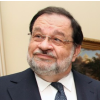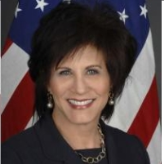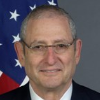Luxembourg
Luxembourg is a small European country surrounded by Belgium, West Germany and France. Though the area was originally settled by Celts and Romans, Luxembourgers consider themselves a culturally distinct people. Historically, they have been ruled by dynasties, such as the Bourbons, Habsburgs, and Hohenzollerns, and fallen under French, Austrian and German control at times. Charles IV made Luxembourg a duchy in 1354, and in 1815, the country was granted Grand Duchy status by the Congress of Vienna. Luxembourg achieved full political independence in 1839, but was not recognized as such until 1867, when it became politically neutral. During this period, economic problems resulted in a massive emigration to the US. Germany occupied Luxembourg during World Wars I and II, and after the Second World War, Luxembourg became both a member of NATO and a founding member of the European Union. Luxembourg has become a very prosperous nation, offering tax havens to millions of investors worldwide while also engaging in a Double Tax Treaty with the US to improve trade. It also has become a diplomatic haven for contributors to the winning party in U.S. presidential elections. Only three of the last 21 U.S. ambassadors to Luxembourg have been career diplomats.
Lay of the Land: Residents of this teardrop-shaped country surrounded by Belgium, West Germany, and France consider themselves a culturally distinct people.
The history of Luxembourg dates back to Celtic and Roman times. The territory was once ruled by Charles the Great, but began its history in the year 963. Its first ruler, Siegfried, took control of the Luxembourg Castle which served as a sanctuary and watchtower. Soon a surrounding town developed under different rulers.
The first Luxembourgers came to New York City (New Amsterdam at the time) with the Dutch in 1630.
Noted Luxembourgian-Americans
In 2009, the US exported $1.29 billion in goods to Luxembourg and imported $442.6 million worth of goods. Civilian aircraft, engines, equipment, and parts exports increased from the US totaled $3.21 billion to $ 4.15 billion from 2006 to 2009. Medicinal equipment also increased from $28.5 billion to $416 billion from 2006 to 2009.
Luxembourg Finally Agrees to EU Changes
Luxembourg’s government generally respects the human rights of its citizens, according to the State Department. Problems reported by US officials included prison overcrowding, domestic violence, child abuse and human trafficking.
Note: On Oct 8, 1931, during Gibson’s tenure (under his first appointment) as non-resident Minister, Gibson introduced George P. Waller to the Minister of State in Luxembourg, in Waller’s capacity as Second Secretary of Legation and Consul; Gibson then returned to Brussels Oct 9, 1931, leaving Waller in charge at Luxembourg, the Department of State having previously authorized the Consul and Second Secretary at that post to act as Chargé d’Affaires ad interim in the absence of the Minister and First Secretary. The status of the post at Luxembourg as a resident Legation was confirmed by an instruction dated Jun 14, 1952.
 Wolzfeld, Jean-Louis
Wolzfeld, Jean-Louis
The Grand Duchy of Luxembourg—a tiny (area: 998.6 miles2/2,586.4 km2) landlocked nation sandwiched between France, Germany and Belgium—sent a new ambassador to Washington last fall who has served in the U.S. before. Jean-Louis Wolzfeld presented his credentials to President Obama on September 19, 2012, succeeding Jean-Paul Senninger, who had served since August 2008. Wolzfeld is concurrently accredited as Luxembourg's ambassador to Canada.
Born in July 1951 in Luxembourg, Wolzfeld earned his undergraduate degree at the Institute of Translation and Interpretation at the University of the Sarre, in Sarrebruck, Germany, and two Masters Degrees from the University of Paris I in International Public Law and in European Law.
Joining the Luxembourg Ministry of Foreign Affairs in 1977, Wolzfeld served early assignments as an attaché, as secretary in the office of international economic relations, and as a delegate at the 34th UN General Assembly in 1979. From 1981 to 1986 he was deputy permanent representative to the International Organizations in Geneva, Switzerland, serving as vice president of the Contracting Parties of the General Agreement on Tariffs and Trade (GATT) in 1986.
Ten years into his diplomatic career, Wolzfeld was named to his first ambassadorship, serving as his country's first ambassador to Japan from 1987 to 1993, with a concurrent appointment as ambassador to South Korea for part of that time. Returning to New York, Wolzfeld served as permanent representative to the U.N. from 1993 to 1998. In 1997, as chairman of the European Union delegations to the U.N., it fell to Wolzfeld to publically chastise the U.S. Congress for voting to refuse to pay a billion dollars in back dues as a protest against abortion.
Back in Europe, Wolzfeld served as director for political affairs at the Foreign Ministry from 1998 to 2002. He then served as ambassador to the United Kingdom, resident in London from 2002 to 2013 and concurrently accredited to Ireland, Italy, Malta and Iceland.
Wolzfeld speaks French, English, German, Italian, Spanish and Luxembourgish (a Germanic language spoken mainly in that country). He is not married.
To Learn More:
A Grand Duchy Christmas and Amb. Jean-Louis Wolzfeld (by Gary Tischler, The Georgetowner)
- Table of Contents
- News
- Overview
- Basic Information
- History
- Newspapers
- History of U.S. Relations with Luxembourg
- Current U.S. Relations with Luxembourg
- Where Does the Money Flow
- Controversies
- Human Rights
- Debate
- Past Ambassadors
- Ambassador to the U.S.
- Embassy Web Site in the U.S.
- Comments
- Leave a comment
U.S. Ambassador to Luxembourg

The American ambassadorship to Luxembourg has long been reserved as a post for rewarding political friends and benefactors of presidents. In the last 50 years, only three out of 21 U.S. ambassadors to the tiny European country have been career diplomats. Cynthia Stroum, who was sworn in as Ambassador to Luxembourg December 7, 2009, and announced her resignation on January 12, 2011 (effective January 31), was not one of them.
She has served on the board of the Fred Hutchinson Cancer Research Center and as the founding chairman of the board of the Pancreatic Cancer Action Network (PanCAN). She has also served on the board of the USC Shoah Foundation Institute.
Previous U.S. Ambassador to Luxembourg

On June 28, 2011, President Barack Obama announced his intention to replace one top donor with another in making his latest pick for ambassador to Luxembourg: Florida real estate developer Robert A. Mandell. Mandell was sworn in on October 25, 2011.
Luxembourg is a small European country surrounded by Belgium, West Germany and France. Though the area was originally settled by Celts and Romans, Luxembourgers consider themselves a culturally distinct people. Historically, they have been ruled by dynasties, such as the Bourbons, Habsburgs, and Hohenzollerns, and fallen under French, Austrian and German control at times. Charles IV made Luxembourg a duchy in 1354, and in 1815, the country was granted Grand Duchy status by the Congress of Vienna. Luxembourg achieved full political independence in 1839, but was not recognized as such until 1867, when it became politically neutral. During this period, economic problems resulted in a massive emigration to the US. Germany occupied Luxembourg during World Wars I and II, and after the Second World War, Luxembourg became both a member of NATO and a founding member of the European Union. Luxembourg has become a very prosperous nation, offering tax havens to millions of investors worldwide while also engaging in a Double Tax Treaty with the US to improve trade. It also has become a diplomatic haven for contributors to the winning party in U.S. presidential elections. Only three of the last 21 U.S. ambassadors to Luxembourg have been career diplomats.
Lay of the Land: Residents of this teardrop-shaped country surrounded by Belgium, West Germany, and France consider themselves a culturally distinct people.
The history of Luxembourg dates back to Celtic and Roman times. The territory was once ruled by Charles the Great, but began its history in the year 963. Its first ruler, Siegfried, took control of the Luxembourg Castle which served as a sanctuary and watchtower. Soon a surrounding town developed under different rulers.
The first Luxembourgers came to New York City (New Amsterdam at the time) with the Dutch in 1630.
Noted Luxembourgian-Americans
In 2009, the US exported $1.29 billion in goods to Luxembourg and imported $442.6 million worth of goods. Civilian aircraft, engines, equipment, and parts exports increased from the US totaled $3.21 billion to $ 4.15 billion from 2006 to 2009. Medicinal equipment also increased from $28.5 billion to $416 billion from 2006 to 2009.
Luxembourg Finally Agrees to EU Changes
Luxembourg’s government generally respects the human rights of its citizens, according to the State Department. Problems reported by US officials included prison overcrowding, domestic violence, child abuse and human trafficking.
Note: On Oct 8, 1931, during Gibson’s tenure (under his first appointment) as non-resident Minister, Gibson introduced George P. Waller to the Minister of State in Luxembourg, in Waller’s capacity as Second Secretary of Legation and Consul; Gibson then returned to Brussels Oct 9, 1931, leaving Waller in charge at Luxembourg, the Department of State having previously authorized the Consul and Second Secretary at that post to act as Chargé d’Affaires ad interim in the absence of the Minister and First Secretary. The status of the post at Luxembourg as a resident Legation was confirmed by an instruction dated Jun 14, 1952.
 Wolzfeld, Jean-Louis
Wolzfeld, Jean-Louis
The Grand Duchy of Luxembourg—a tiny (area: 998.6 miles2/2,586.4 km2) landlocked nation sandwiched between France, Germany and Belgium—sent a new ambassador to Washington last fall who has served in the U.S. before. Jean-Louis Wolzfeld presented his credentials to President Obama on September 19, 2012, succeeding Jean-Paul Senninger, who had served since August 2008. Wolzfeld is concurrently accredited as Luxembourg's ambassador to Canada.
Born in July 1951 in Luxembourg, Wolzfeld earned his undergraduate degree at the Institute of Translation and Interpretation at the University of the Sarre, in Sarrebruck, Germany, and two Masters Degrees from the University of Paris I in International Public Law and in European Law.
Joining the Luxembourg Ministry of Foreign Affairs in 1977, Wolzfeld served early assignments as an attaché, as secretary in the office of international economic relations, and as a delegate at the 34th UN General Assembly in 1979. From 1981 to 1986 he was deputy permanent representative to the International Organizations in Geneva, Switzerland, serving as vice president of the Contracting Parties of the General Agreement on Tariffs and Trade (GATT) in 1986.
Ten years into his diplomatic career, Wolzfeld was named to his first ambassadorship, serving as his country's first ambassador to Japan from 1987 to 1993, with a concurrent appointment as ambassador to South Korea for part of that time. Returning to New York, Wolzfeld served as permanent representative to the U.N. from 1993 to 1998. In 1997, as chairman of the European Union delegations to the U.N., it fell to Wolzfeld to publically chastise the U.S. Congress for voting to refuse to pay a billion dollars in back dues as a protest against abortion.
Back in Europe, Wolzfeld served as director for political affairs at the Foreign Ministry from 1998 to 2002. He then served as ambassador to the United Kingdom, resident in London from 2002 to 2013 and concurrently accredited to Ireland, Italy, Malta and Iceland.
Wolzfeld speaks French, English, German, Italian, Spanish and Luxembourgish (a Germanic language spoken mainly in that country). He is not married.
To Learn More:
A Grand Duchy Christmas and Amb. Jean-Louis Wolzfeld (by Gary Tischler, The Georgetowner)
Comments
U.S. Ambassador to Luxembourg

The American ambassadorship to Luxembourg has long been reserved as a post for rewarding political friends and benefactors of presidents. In the last 50 years, only three out of 21 U.S. ambassadors to the tiny European country have been career diplomats. Cynthia Stroum, who was sworn in as Ambassador to Luxembourg December 7, 2009, and announced her resignation on January 12, 2011 (effective January 31), was not one of them.
She has served on the board of the Fred Hutchinson Cancer Research Center and as the founding chairman of the board of the Pancreatic Cancer Action Network (PanCAN). She has also served on the board of the USC Shoah Foundation Institute.
Previous U.S. Ambassador to Luxembourg

On June 28, 2011, President Barack Obama announced his intention to replace one top donor with another in making his latest pick for ambassador to Luxembourg: Florida real estate developer Robert A. Mandell. Mandell was sworn in on October 25, 2011.







Comments